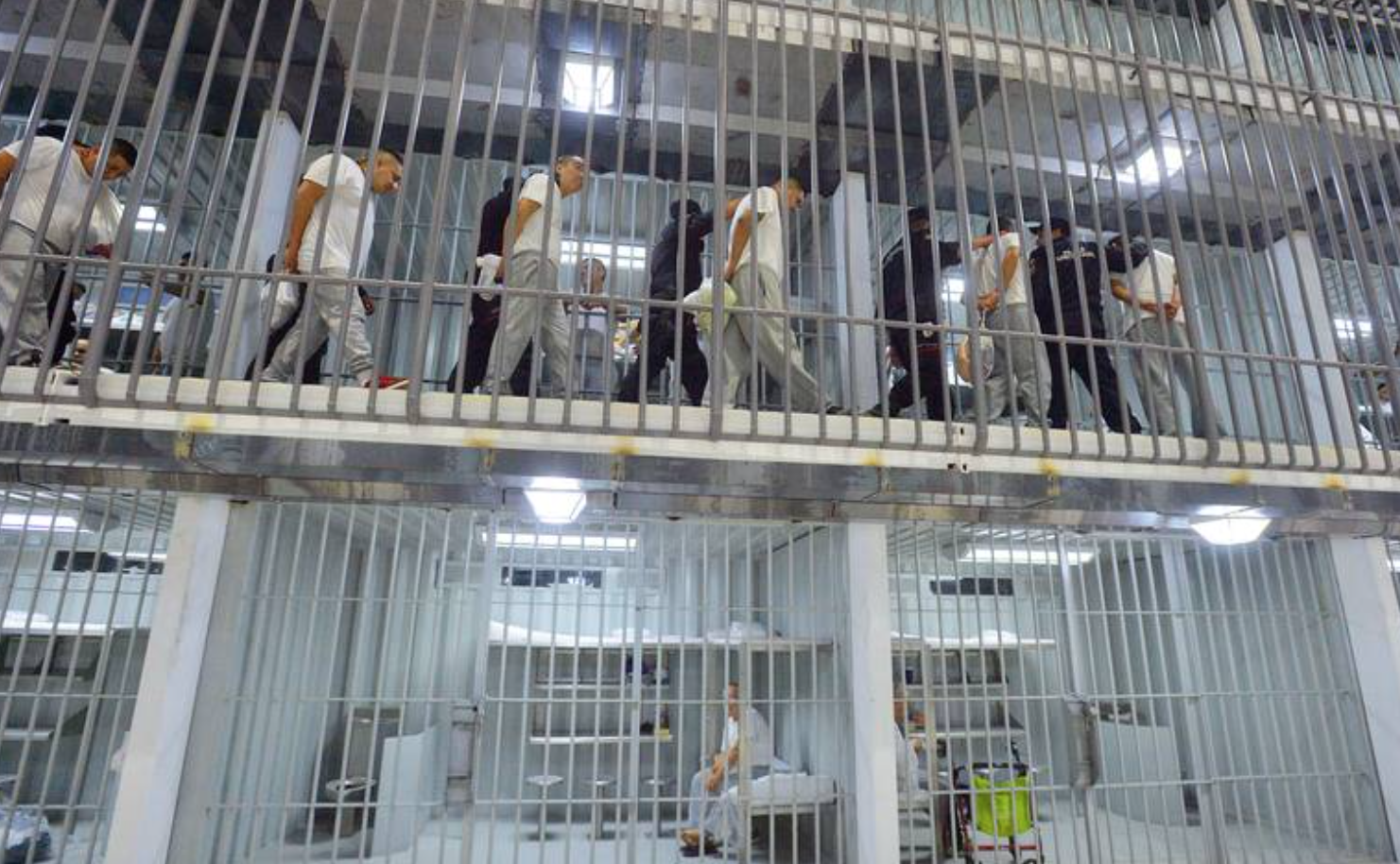Retired General Sergio Alberto Martínez Castuera assumed the position of operational coordinator of all federal prisons in Mexico at the beginning of 2019. He, along with the then commissioner of the penitentiary system, was López Obrador’s strong card to redirect the penitentiary policy. With the backing of a brilliant military career, his appointment generated great expectations and even, at the beginning of his mandate, there was talk of “reconciliation”, “human rights” and a decree was issued so that those tortured in prison would be released. But two and a half years later, the Ministry of the Interior (Secretaría de Gobernación) has not even installed the pre-release table and in different parts of the country, collectives are beginning to organize to point out that the government has done nothing to reverse the situation.
In the last few months, relatives and inmates have denounced the continuity and the hardening of inhumane situations in practically all the Federal Centers for Social Readaptation (CEFERESOS). And especially those privately managed, called Concessioned Penitentiary Centers (CPS).
The most common complaints include the scarce and deficient food, the lack of doctors, dentists, psychiatrists and medicines, as well as the absence of social reintegration measures, of possibilities to do sports, to study or to develop a work activity. However, misfeasance, torture and the systematic use of threats, both to inmates and their families, have also been denounced.
Last year, approximately 1,500 persons that were deprived of their liberty for allegedly having violated the law, filed more than twelve amparos—a constitutional appeal, which may be filed in federal court, by Mexicans and by foreigners—before the federal justice system, with the help of the non-profit and civil rights association Dignidad y Derechos Humanos (Dignity and Human Rights), to improve their living conditions in the CEFERESOS of Michoacán, Chiapas, Durango, Oaxaca and Guanajuato. Journalist Guadalupe Lizárraga has also made visible, through the Los Angeles Press, human rights abuses in both the federal and local penitentiary systems.
On July 19, this collective held a demonstration in front of the National Palace and subsequently denounced the Mexican state before the United Nations’ High Commissioner for Human Rights in Mexico City to demand the intervention of the international organization.
Initially, the amparos had a positive effect and some of the claims were met. More recently though, the demands have begun to be unfulfilled and the authorities in the prison system have unleashed a crackdown campaign against inmates and their families. This has translated into beatings, denial of food, water, medicine and time out of cell, as well as arbitrary transfers and abuse of power and torture.
On May 14 of 2021, the inmates of the CEFERESO number 4 in the state of Nayarit rebelled and accused the director, Jazmín Borbón Ochoa, of abuse of power and torture and went on hunger strike. This year, on March 14, the prisoners of the CEFERESO number 17 in Michoacán went on hunger strike and denounced the director, Alfredo Reyes Vázquez, and the security commander, Roberto Lázaro Chavarría, for abuse of authority. This led to the entry of the National Guard into the prison and the transfer of a group of inmates to a new penitentiary in Guanajuato where they were tortured.
Days later, after an amparo injunction was granted in favor of the inmates of the CEFERESO number 15 in Chiapas, the prison’s director, Erika Adriana Tenopala Chausse, decided not to comply with the measures ordered by the judges and toughened repressive measures against the 235 people who had been granted an injunction. On July 4, the inmates began a hunger strike and the rebellion continues to this day.
The case of journalist Héctor Váldez, who was displaced for security reasons from Tulum to Mexico City, is evidence of the lack of control of both the head of the City’s government, Claudia Sheinbaum, and the Secretary of Public Security, Omar García Harfuch. From prison, the journalist denounced beatings and even direct threats from the undersecretary of the penitentiary system, Enrique Serrano.
This long list of abuses, however, does not occur only in the federal system, nor specifically in the CPS. The local prison system is much more difficult to control and abuses and cases of torture are much more common.
The lack of minimum conditions for a dignified life, abuses of power in the prisons and transfers without notification are some of the grievances that have increased in recent months in the federal prison system. Given this situation, the authorities face a great challenge to break this authoritarian and repressive prison culture that has to do with impunity and corruption.
Translated from Spanish by Ricardo Aceves











